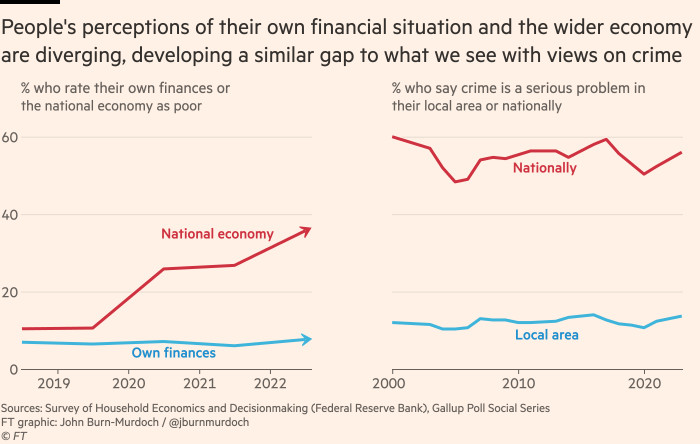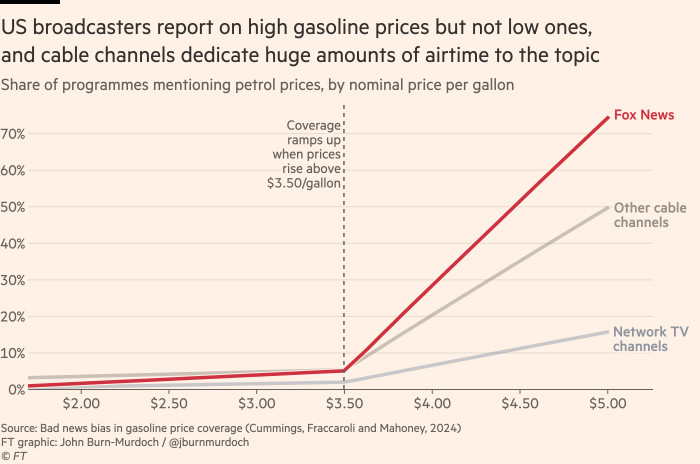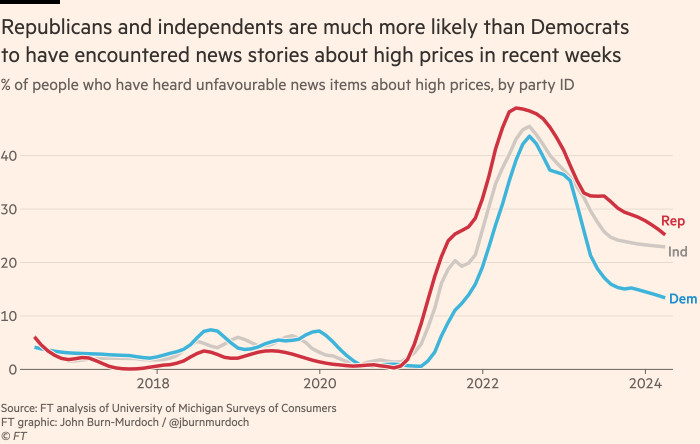Unlock the Editor’s Digest for free
Roula Khalaf, Editor of the FT, selects her favourite stories in this weekly newsletter.
The following two sentences might seem a little surprising, coming from a journalist at a large media organisation armed with cutting-edge analytics displaying how each article, newsletter and podcast is performing, but here they are nonetheless.
First, I think it’s reasonable to argue that the age of mass media has not been unambiguously good for public understanding of the world. And second, the more information publishers and broadcasters have had about how their audience is interacting with their output, the more ambiguous the impact of this output has become.
The muddy relationship between audience-optimised publishing and public understanding has long been apparent in the case of crime. The pursuit of William Randolph Hearst’s maxim that “if it bleeds, it leads” has led us to a perverse situation where someone’s perception of crime is driven more by news reports than by their own experiences or those of people they know. It is now the norm for people to believe crime is rising when it is falling, and people’s life satisfaction is based more on their perceptions of crime than on actual crime.
But there is a growing body of evidence that the same troubling phenomenon may now be playing out with public perceptions of the economy.

Data from the US Federal Reserve shows the same tell-tale pattern we have grown used to with crime: people assess their own financial situation to be relatively healthy, and this changes very little from year to year, but their assessment of the national economy has cratered, opening up a huge gulf. It seems increasingly likely news coverage shoulders part of the blame.
One study this year found that even as recessions have become far fewer and further between over the last century, news articles written about the economy have been more and more downbeat. Another found that the tone of economic news has further decoupled from the fundamentals in recent years, beginning in 2018, meaning this cannot just be about the pandemic or the recent bout of inflation.
The latest piece of the evidence comes from Ryan Cummings, Giacomo Fraccaroli and Neale Mahoney, a trio of economists writing for the US economics publication Briefing Book, whose analysis of 1mn transcripts from six US broadcasters demonstrates a striking negativity bias when it comes to reporting petrol prices. This is particularly important given the formative role these prices have on consumer sentiment more broadly.

The research tells us several things. First, there is far more news coverage of prices when they are high than low. If it exceeds, it leads, you might say. Second, the price at which this negative coverage takes off has been falling steadily lower in real terms — making negative headlines more and more likely even for the same level of affordability. And crucially, third, the switch into bad-news-about-prices mode happens much more abruptly on subscription-based cable news channels — where the incentives to keep the viewer glued to the screen are strongest — than on network television.
The strongest effect of all this is seen with the rightwing Fox News, where the record high pump prices of June 2022 led to almost 80 per cent of programmes mentioning the cost of petrol, compared with about 50 per cent on CNN and MSNBC, and less than 20 per cent on network channels. In light of this it is unsurprising that data from the University of Michigan’s consumer sentiment survey shows Republicans are almost twice as likely as Democrats to say they’ve recently heard unfavourable news about high prices.

All this makes it unlikely that President Joe Biden will get much of the hoped-for boost from the US’s ongoing economic expansion. Charts showing American incomes and wealth rising, inequality falling and unemployment remaining low just can’t compete with easily debunked but very clickable claims that most families are living pay cheque to pay cheque.
And unfortunately, none of this is likely to change. A recent paper in Nature found that the more negative a headline, the more people will click on it, and anyone who has spent time on social media — now the primary source of news for a growing portion of people — will know the same dynamics apply there. From news organisations to TikTokers, everyone is now optimising for engagement, and that means we hear more about the bad than the good.






